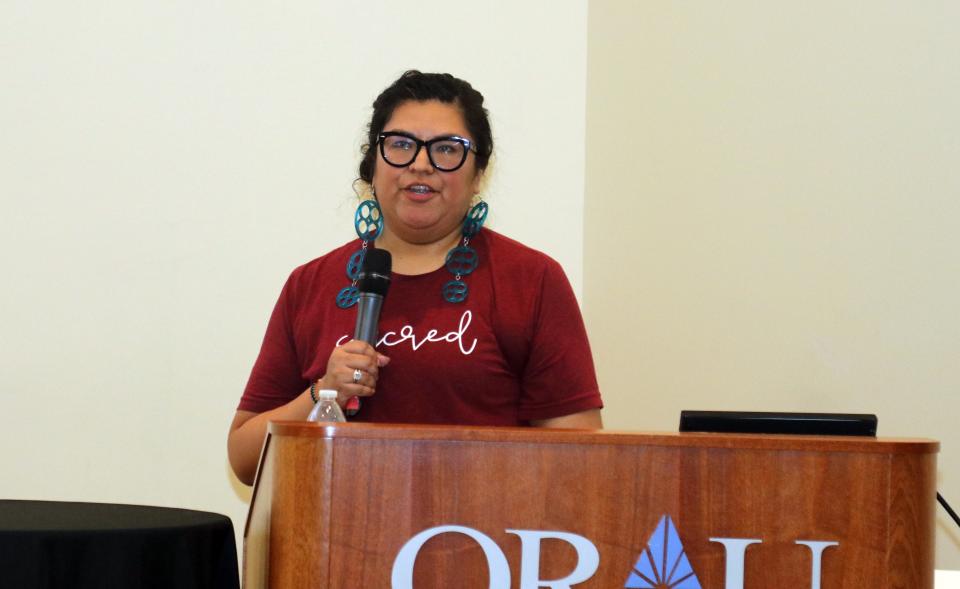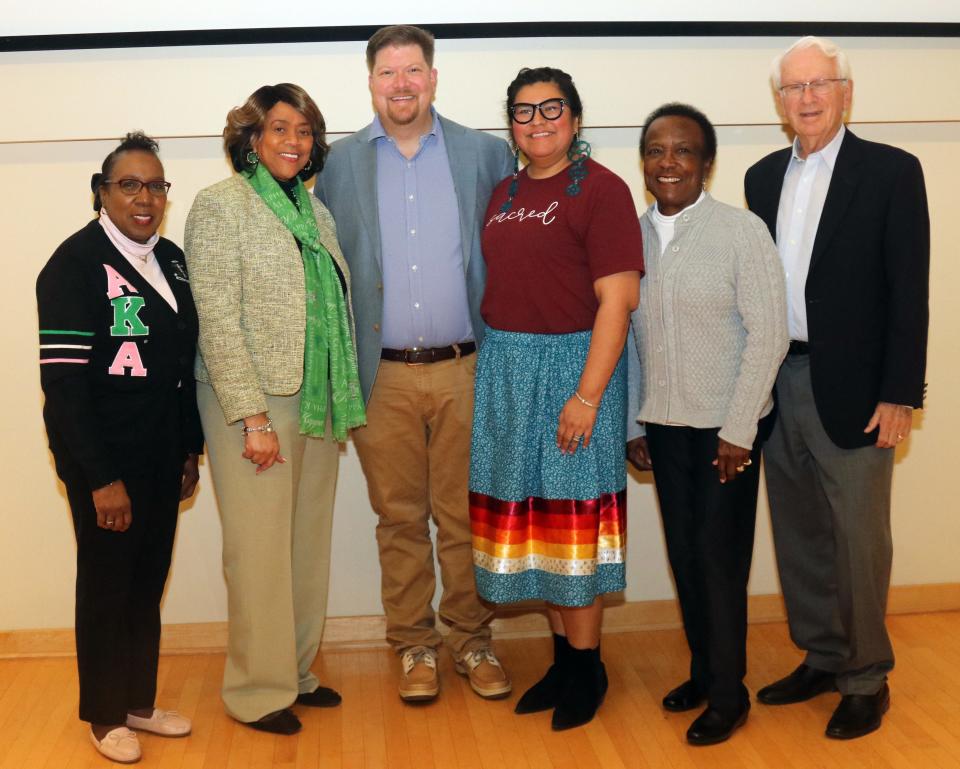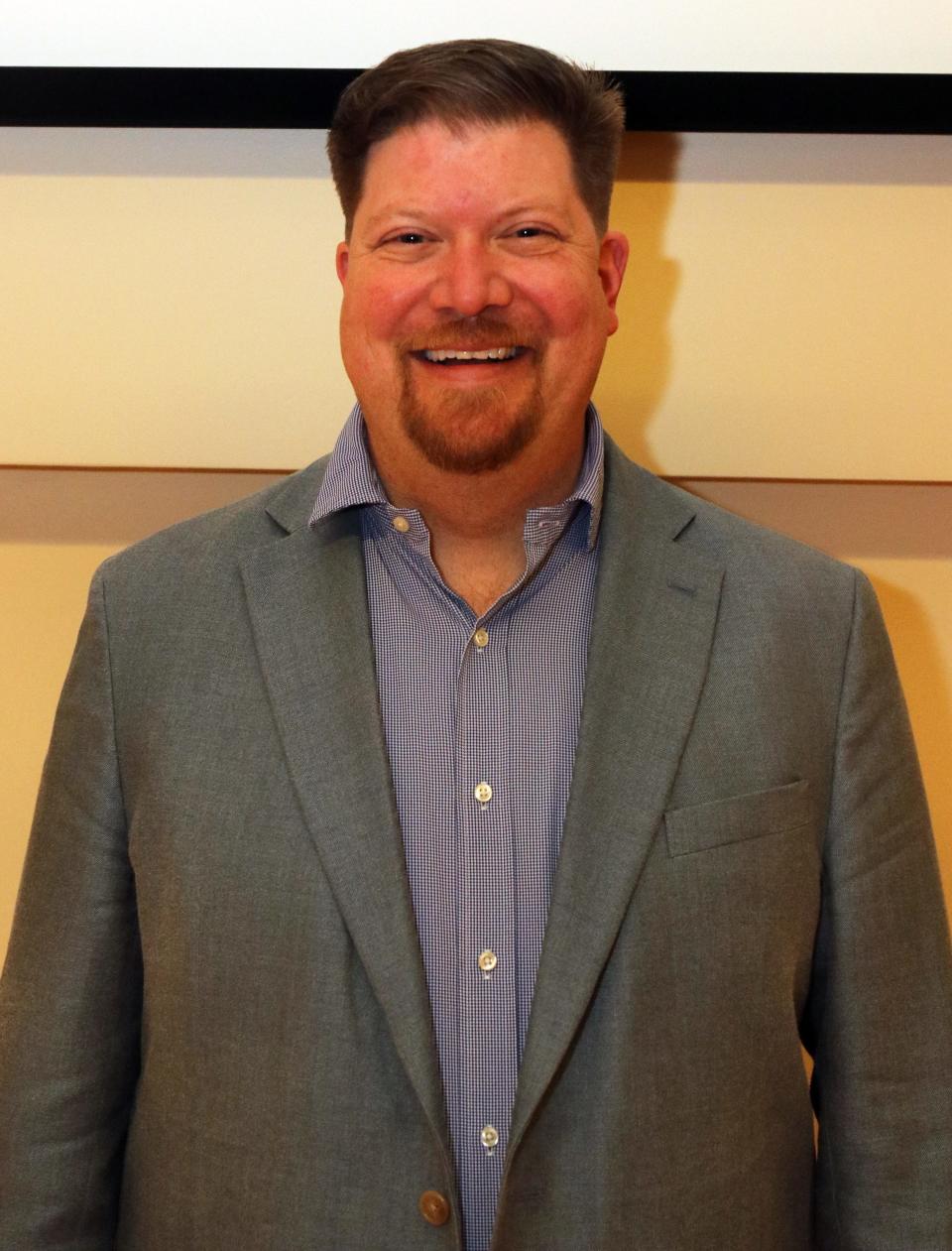Cherokee speaker: Support grows for renaming of Clingmans Dome
Changing a non-American Indian name of the highest peak in Great Smoky Mountains National Park to its original Cherokee name and charging non-Indians who commit crimes on Cherokee land are two outcomes being pursued by the Eastern Band of Cherokee Indians (EBCI).

Those were two of the themes of the “Roots of Indigenous Heritage” talk by Lavita Hill, an enrolled member of EBCI and treasury specialist for the EBCI tribal government. She works in its budget and finance office.
She was the second speaker in the “Roots of America” exploration of cultures series sponsored jointly by the Oak Ridge Institute for Continued Learning and the Oak Ridge Breakfast Rotary Club. She delivered her lecture in the Pollard Technical Conference Center of Oak Ridge Associated Universities.

Hill, who lives in Cherokee, N.C., the capital of EBCI, has helped lead an effort to convince numerous political and civic groups and hiking clubs in North Carolina and Knoxville to support the EBCI resolution seeking a change in the name of Tennessee’s highest mountain from Clingmans Dome to the peak’s original name of Kuwohi. That’s the word for “mulberry place” in Tsalagi, the Cherokee language.
In 1859, the Kuwohi peak was renamed Clingmans Dome after Thomas Lanier Clingman of North Carolina, who explored and measured the heights of mountains. He was a member of the U.S. House of Representatives for seven terms (1843-58), a U.S. senator for one term and a Confederate brigadier general. Clingman strongly expressed his support for slavery and the Confederacy.
“One of our biggest proponents of this effort to rename the mountain is Tom Clingman, who lives in Virginia and is a direct lineal descendant of Gen. Clingman,” said Hill, who often tells groups that “for well over 99% of the time that human beings have occupied these lands, people have called the mountain Kuwohi, not Clingmans Dome.”
She gave several reasons for her motivation to win support for changing the peak name to Kuwohi. She said she wants to honor her grandmother who raised her and who was punished for speaking the Cherokee language in one of the boarding schools run for Indian children by white people.
Another reason is that Kuwohi provided hiding places for the ancestors of the EBCI during the forced march of 50,000 Indigenous people, including 15,000 Cherokee Indians, who were forced to walk to a new home west of the Mississippi River, as mandated by the Indian Removal Act of 1830. Thousands died from brutal treatment, starvation, exposure and disease.
According to the resolution passed by the Eastern Band of Cherokee Tribal Council to restore the original name of Clingmans Dome to Kuwohi, the Cherokee people’s sacred mountain was the site for prayers by tribal medicine people who asked for spiritual guidance in making decisions for the people. Hill added that the mountain was a rich source of the mulberry fruit that helped nourish the tribal people.
She urged Oak Ridge residents and others in the audience who are interested in supporting the name change effort to sign a petition on the www.kuwohi.org website. “The most important factor in getting a place name changed is local community support,” she said. “In a few weeks, we will submit an application to the U.S. Board on Geographic Names, a federal board in Virginia that maintains all place names throughout the United States and internationally.”
Prosecuting non-American Indians in Indian courts
Hill and her husband Chris Siewers, associate counsel in the EBCI Office of the Attorney General (and replacement for Chief Richard Sneed, who was unable to be the second speaker), spoke about an underreported situation in which non-Indians committing crimes, including domestic violence, rape and murder on Native American territories, cannot be prosecuted in Indian courts.

“All Indian reservations have become a black hole for a swath of criminal activity because non-Indians have figured out that they can commit any crime and the Indian police can’t arrest them,” Siewers said. “Indian reservations are the only places in America where the race you are dictates whether you can get tried and convicted in court on the reservations. Congress needs to pass a law to address this injustice.”
Hill stated that the Supreme Court in 1978 imposed a rule that tribal courts can prosecute only members of federally recognized Indian Tribes such as EBCI.
“No tribal court or state court can prosecute non-Indians accused of committing crimes against a tribal member," Hill said,
She mentioned recent news stories on the thousands of “Missing and Murdered Indigenous Women,” mostly missing American Indian and Alaska Native women and girls. The National Crime Information Center has stated that most of these murders are committed by non-Indian people on Indian-owned land.
'A wealthy tribe with many resources'
On the bright side, Hill said of EBCI, which has 17,000 enrolled members, “today we are a wealthy tribe with many resources. We own and operate two casinos. Thanks to them, our government provides extensive services to our tribal members.”
Almost half of the tribal members live on the Qualla Boundary, a land trust that has a modern government with an elected principal chief, vice chief and the Tribal Council legislative body, which consists of 12 elected members. Its court system handles civil and criminal cases. On the reservation are a police force and jail.
“We run our own hospital and we are afforded free healthcare,” Hill said, noting that she left the reservation to get a knee replacement earlier this year at no cost to her. She acknowledged that EBCI and the other Cherokee tribes, like many communities in the United States, have been dealing with the epidemic of opioid pain pills, heroin and fentanyl.
But, she added, “We have a residential rehabilitation center for people who are trying to get off drugs. We’re taking all the steps necessary to help people that want help.”
EBCI has a school system that educates Cherokee students from kindergarten to 12th grade.
“We currently have sufficient revenues to pay for our people to attend colleges, universities and trade schools to further their education,” Hill said. “The goal is to have educated tribal members who are either ready to study, gain experience and work in the wider world, or to acquire an education and bring their skill sets back to the Qualla Boundary.”
Hill said she has a nephew who is about to graduate from Yale University and pursue his graduate education at Duke University. She expressed doubt that he will return to the Qualla Boundary soon after his education is completed, but he might come back eventually because “he’s very interested in linguistics and doing what he can to preserve the Cherokee language,” which is now being taught in Qualla Boundary schools.
Read more about the Cherokee and Hill's talk in Friday's edition as D. Ray Smith and Carolyn Krause present the newest "Historically Speaking" column.
This article originally appeared on Oakridger: Cherokee speaker: Support grows for renaming of Clingmans Dome

